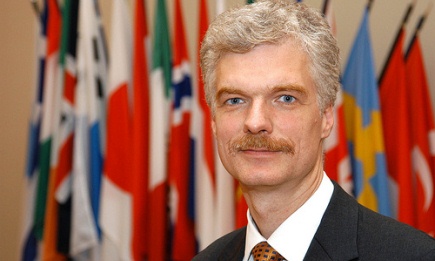Legendes over onderwijs

In zijn nieuwste blog over de lessen uit 15 jaar PISA behandelt Schleicher de volgende ‘myths about schooling’. Zijn persoonlijke onderwijservaringen en visie daarop werkte hij uit in dit interview met ScienceGuide.eu.
Deprivation is destiny
Teachers all around the world struggle trying to make up for social disadvantage in their classrooms. Sceptics believe that deprivation is destiny. And yet, results from OECD PISA show that the 10% most disadvantaged 15-year-olds in Shanghai have better mathematics skills than the 10% most privileged students in the US and several European countries. In fact, children from similar social backgrounds can show very different performance levels, depending on the school they go to or the country they live in.
The point is that education systems where disadvantaged students succeed are able to moderate social inequalities. They tend to attract the most talented teachers to the most challenging classrooms and the most capable school leaders to the most disadvantaged schools, which steers all students to high standards, too.
Immigrants drag down overall school performance
Integrating students with an immigrant background can be challenging, but results from PISA show no relationship between the share of students with an immigrant background and the overall performance of students in that country.
Even students with the same migration history and background show very different performance levels across countries, suggesting that where students go to school makes more of a difference than where they come from.
It’s all about money
Without investment in skills people languish on the margins of society, technological progress does not translate into productivity growth, and countries can no longer compete in an increasingly knowledge-based global economy. And yet, educational expenditure per student explains less than 20% of the variation in student performance across OECD countries.
For example, students in the Slovak Republic, which spends around US$53 000 per student between 6 and 15 years of age, perform at the same level at 15 years old as students in the US, which spends over $115 000 per student. Korea, the highest-performing OECD country in mathematics, spends well below the average per-student expenditure. Educational success is about how money is spent, not how much is spent.
Educational quality and personalisation is about class size
Everywhere, teachers, parents and policymakers fuss about small classes for more personalised education. Reductions in class size have driven up expenditure per student in most countries over the last decade. And yet, PISA results show no relationship between class size and learning outcomes, neither within nor between countries.
More interestingly, the highest performing education systems in PISA tend to systematically prioritise the quality of teachers over the size of classes. They invest in competitive teacher salaries, ongoing professional development and a balance in working time that allows teachers to contribute to their profession and to grow in their careers. The quality of teachers counts more than class size.
Success in education is about talent
The writings of many educational psychologists, from Terman on, have fostered a widespread notion that student achievement is mainly a product of inherited intelligence, not hard work. This is also mirrored in results from PISA where students in the Western world reported that they needed good luck rather than hard work to do well in mathematics or science.
Meanwhile, a comparison between school marks and the performance of students in PISA also suggests that teachers often expect less of students from lower socio-economic backgrounds, even if they show similar levels of achievement to those from more favourable backgrounds. And those students and their parents may expect less, too. This is a heavy burden for education systems to bear.
In Finland, Japan, Singapore, Shanghai-China and Hong Kong-China, students, parents, teachers and the public share the belief that all students are capable of achieving high standards and need to do so. Students in those systems consistently reported that if they tried hard, they would trust in their teachers to help them excel. Teachers “level upwards”, by requiring all students to meet the standards that they formerly expected only their elite students to meet. In these education systems, students who start to fall behind are identified quickly, their problem is promptly and accurately diagnosed and the appropriate course of action is rapidly taken. Inevitably, this means that some students receive more resources than others because the needs of some students are greater; but it is the students with the greatest needs who receive the most resources.
Excellence is about selection
For centuries educators have wondered how they should design educational school systems so that they best serve student needs. Some countries have adopted non-selective and comprehensive school systems that seek to provide all students with similar opportunities, while other countries track and stream students, with the aim of serving students according to their academic potential and/or interests.
Conventional wisdom has it that the former serves equity, while the latter fosters quality and excellence. Yet, none of the countries with a high degree of stratification or grade repetition is among the top performing education systems. Rather the OECD PISA results show that the highest performing education systems combine both.
Meest Gelezen
Vrouwen houden universiteit draaiende, maar krijgen daarvoor geen waardering
Hbo-docent wil wel rolmodel zijn, maar niet eigen moreel kompas opdringen
Wederom intimidatie van journalisten door universiteit, nu in Delft
‘Waarom het nu niet lukt om medezeggenschap in hbo te versterken’
‘Sluijsmans et al. slaan de plank volledig mis’



